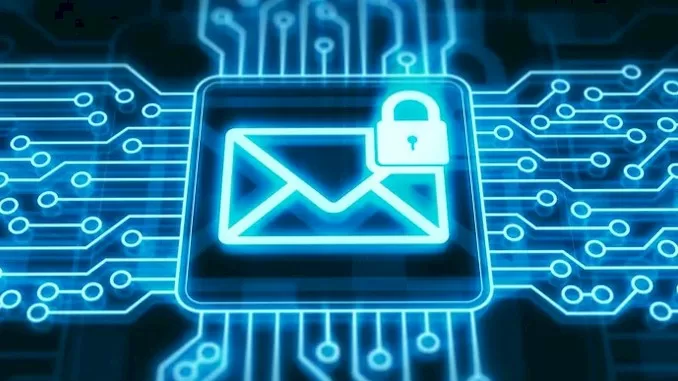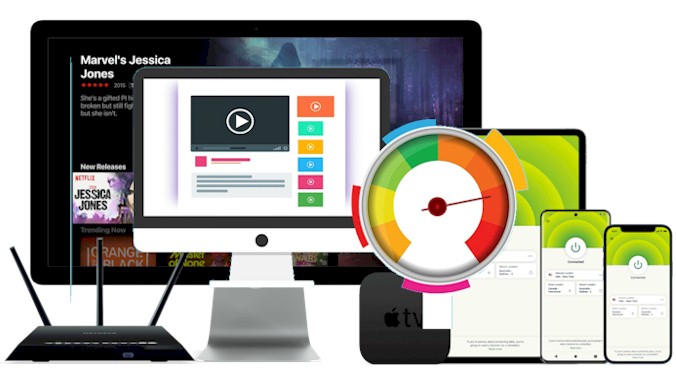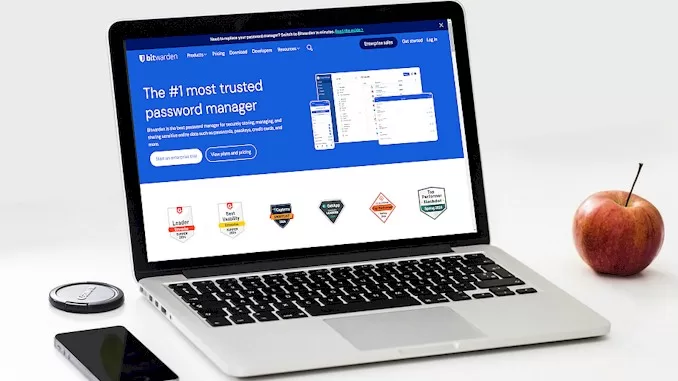Can VPN See My Passwords And Information That I Pass To Websites?
If you use a VPN to browse the web, you might wonder if your passwords and other sensitive information are safe from prying eyes. Can a VPN see your data and use it for malicious purposes? You’re not alone. I was in the same shoes as you. The concern pushed me to take a lot of time to search, read, and discuss with the experts in the VPN industry. This article is about what I have learned:
A VPN cannot see your passwords and the information you transmit to websites since A VPN, or virtual private network, employs robust encryption protocols to establish a secure and encrypted connection between your device and the websites you visit. This encryption acts as a shield, rendering your passwords and personal information indecipherable to any prying eyes, including the VPN provider itself. Therefore, Your sensitive data remains confidential and protected, ensuring a heightened level of privacy during your online activities.
But the protection offered by a VPN extends beyond the encryption of your data. There are additional layers of security and features that make VPNs an invaluable tool for safeguarding your online presence. In the following sections, we will explore the inner workings of VPNs, discuss the types of encryption used, examine the role of VPN protocols, and shed light on other essential considerations. By delving deeper into this topic, you will gain a comprehensive understanding of VPNs and their ability to ensure your online privacy. So, if you’re eager to uncover more valuable insights and discover how to maximize your security while browsing the web, I encourage you to read on. Your digital safety is of utmost importance, and with the knowledge I’m about to share, you’ll be equipped to make informed decisions and protect your sensitive information effectively.
Understanding VPNs: How They Safeguard Your Data
When it comes to protecting your data and maintaining online privacy, virtual private networks (VPNs) play a crucial role. A VPN establishes a secure and encrypted connection between your device and the websites you visit, ensuring that your sensitive information remains confidential. But how exactly do VPNs safeguard your data, and what mechanisms do they employ to ensure your privacy? In this section, we will delve deeper into the inner workings of VPNs, exploring the key aspects that make them a reliable shield for your digital activities.
At the heart of VPNs is encryption, a process that converts your data into an unreadable format, shielding it from unauthorized access. VPNs employ robust encryption protocols, such as AES (Advanced Encryption Standard), which is widely regarded as highly secure. This encryption acts as a protective layer around your data, making it virtually impossible for anyone to intercept or decipher your information. As a result, your passwords, credit card details, browsing history, and any other sensitive data you transmit through the VPN are effectively safeguarded.
To further enhance security, VPNs utilize tunneling protocols. These protocols encapsulate your encrypted data within packets, adding an extra layer of protection as it travels between your device and the VPN server. One commonly used tunneling protocol is OpenVPN, known for its flexibility and strong security features. By employing such protocols, VPNs ensure that your data remains shielded from potential threats, including hackers, cybercriminals, and even government surveillance.
While encryption and tunneling are fundamental aspects of VPNs, it’s important to note that not all VPNs are created equal. The level of security and privacy offered by a VPN can vary depending on several factors, such as the VPN provider’s policies, server locations, and logging practices. It’s crucial to choose a reputable VPN service that prioritizes user privacy, has a strict no-logs policy, and operates in jurisdictions that respect data protection regulations.
Now you have learned that VPNs safeguard your data through robust encryption and tunneling protocols, ensuring that your sensitive information remains confidential and secure. By utilizing advanced encryption algorithms and encapsulating your data within secure tunnels, VPNs offer a high level of protection against potential threats.
However, it’s important to choose a reliable VPN service that upholds strong privacy practices to fully benefit from the security offered by VPNs. Stay tuned as we delve deeper into VPN encryption, protocols, and additional layers of security to provide you with a comprehensive understanding of how to maximize your online privacy.
Debunking Myths: Can a VPN Access Your Passwords and Information?
One common misconception about VPNs is the notion that they have the ability to access and retrieve your passwords and personal information. However, it’s important to understand that a properly configured and reputable VPN service does not have access to this sensitive data. Let’s delve into the intricacies of this myth and debunk it with clear and concise explanations.
When you use a VPN, your data is encrypted before it leaves your device. This means that even if someone were to intercept your encrypted data, they would not be able to decipher it without the encryption key. The encryption key is generated on your device and shared only between your device and the VPN server. The VPN server acts as an intermediary, relaying your encrypted data to the websites you visit. However, it does not have access to the encryption key, rendering your passwords and information indecipherable to the VPN server.
To further emphasize this point, it’s worth noting that reputable VPN providers have strict no-logs policies. This means that they do not log or store any information related to your online activities. By not retaining any user data, including passwords or personal information, VPN providers ensure that even if compelled by legal authorities, they have no information to provide. This adds an additional layer of security and privacy to your online interactions.
Moreover, VPNs operate based on the principle of trust. Users choose VPN services precisely because they trust them to provide secure and private connections. If a VPN were to engage in malicious activities such as accessing and stealing user data, it would quickly erode the trust of its user base and undermine its own business. Reputable VPN providers have a vested interest in maintaining the trust of their users and, therefore, prioritize user privacy and data protection.
As you have learned, the myth that VPNs can access your passwords and personal information is precisely that—a myth. With robust encryption, strict no-logs policies, and the principles of trust and user confidence, VPNs are designed to protect your data, not exploit it. By understanding how VPNs work and selecting a reputable provider, you can confidently browse the internet knowing that your sensitive information remains secure and inaccessible to anyone other than yourself.
Encryption and Security: The Key to VPN Privacy
Encryption plays a pivotal role in ensuring the privacy and security of your data when using a VPN. Understanding the encryption methods employed by VPNs can shed light on how your information is protected. Let’s delve into the intricacies of VPN encryption and the key security measures that contribute to maintaining your online privacy.
When you connect to a VPN, your data is encrypted using sophisticated algorithms that transform it into an unreadable format. The strength of the encryption is measured in bits, with higher numbers indicating stronger encryption. Common encryption protocols used by VPNs include AES-256 (Advanced Encryption Standard with a 256-bit key), which is widely recognized as highly secure. AES-256 encryption employs an incredibly large number of possible key combinations, making it computationally infeasible to break the encryption.
To further enhance security, VPNs use different encryption protocols to establish a secure connection between your device and the VPN server. One widely adopted protocol is OpenVPN, known for its strong security features and compatibility across various platforms. OpenVPN combines encryption algorithms, such as AES, with secure key exchange mechanisms to establish a secure tunnel for your data. By utilizing robust encryption protocols like OpenVPN, VPNs ensure that your information remains confidential and protected from unauthorized access.
It’s important to note that VPN encryption works at two levels: the data encryption level and the tunneling level. Data encryption refers to the process of encrypting your actual data, such as the contents of your emails or the files you upload/download. Tunneling, on the other hand, involves encapsulating your encrypted data within packets that are transmitted between your device and the VPN server. This combination of data encryption and tunneling provides a comprehensive security framework for your online activities.
To visualize the concept of VPN encryption, consider a scenario where you send a password-protected email while connected to a VPN. The VPN encrypts the content of the email, ensuring that only the intended recipient can decrypt and read it. Additionally, the VPN encapsulates the encrypted email within packets and securely transmits them to the email server. This multi-layered approach, consisting of encryption and tunneling, safeguards your sensitive information throughout the entire communication process.
Now you have learned that encryption is the cornerstone of VPN privacy. By employing robust encryption algorithms and secure tunneling protocols, VPNs ensure that your data remains confidential and protected from unauthorized access. The use of strong encryption, such as AES-256, and reliable protocols like OpenVPN, strengthens the security of your online activities. Understanding the intricacies of VPN encryption empowers you to make informed decisions and choose VPN services that prioritize your privacy and data security.
Exploring VPN Protocols: Enhancing Your Online Protection
VPN protocols play a crucial role in establishing secure connections and enhancing your online protection. Different VPN protocols offer varying levels of security, speed, and compatibility. In this section, we will explore some commonly used VPN protocols, their features, and how they contribute to safeguarding your online activities.
- OpenVPN: OpenVPN is widely regarded as one of the most secure and versatile VPN protocols available. It utilizes robust encryption algorithms, such as AES, to protect your data. OpenVPN is also known for its flexibility, as it can be used on various platforms, including Windows, macOS, Linux, Android, and iOS. Its open-source nature allows for continuous scrutiny and improvement, making it a popular choice for privacy-conscious users.
- WireGuard: WireGuard is a relatively new VPN protocol that has gained attention for its simplicity, performance, and strong security. It aims to provide a lean and efficient solution while maintaining robust encryption and authentication. WireGuard’s streamlined codebase makes it easier to audit for potential vulnerabilities, and its modern design offers faster connection speeds and lower latency. While still in active development, WireGuard shows great promise as a secure and efficient VPN protocol.
- IKEv2/IPSec: This is another popular and widely used VPN protocol. It offers high security, stability, and performance. It also supports various encryption algorithms, such as AES-256, AES-128, 3DES, and more. However, IKEv2/IPSec can be less compatible than OpenVPN with some devices and platforms.
- Lightway: This is another new and innovative VPN protocol that offers high speed, security, and efficiency. It uses a lightweight codebase and a modern encryption algorithm called AES-256-GCM. However, Lightway is still in development and may not be as widely supported as other protocols.
- IPSec (Internet Protocol Security): IPSec is a suite of protocols used to secure internet communication. It offers strong encryption and authentication mechanisms to ensure the integrity and confidentiality of your data. IPSec can be used in two modes: Transport mode, which encrypts only the data payload, and Tunnel mode, which encrypts the entire IP packet. IPSec is commonly used in combination with other protocols, such as L2TP or IKEv2, to establish secure VPN connections.
- L2TP/IPSec (Layer 2 Tunneling Protocol/IPSec): L2TP/IPSec is a combination of two protocols, offering the benefits of both. L2TP provides the tunneling mechanism, while IPSec provides the encryption and authentication. L2TP/IPSec is widely supported across platforms and devices, making it a popular choice for VPN connections. However, it’s worth noting that L2TP/IPSec has been subject to some security vulnerabilities, so it’s important to ensure that strong encryption and authentication methods are used.
Choosing the right VPN protocol depends on your specific needs. If security is your primary concern, protocols like OpenVPN and IPSec provide robust encryption and authentication. If speed and efficiency are paramount, WireGuard may be a suitable option. Compatibility with your devices and the VPN service you choose is also a crucial factor to consider.
VPN protocols are instrumental in enhancing your online protection. From the versatility and security of OpenVPN to the combination of tunneling and encryption in L2TP/IPSec, each protocol offers unique features to cater to different user requirements. By understanding the strengths and characteristics of various VPN protocols, you can make an informed decision when selecting a VPN service that aligns with your security, speed, and compatibility needs. In next section, we are going to explore additional layers of VPN security and the our journey will provide you with comprehensive insights into maximizing your online privacy.
Beyond Encryption: Additional Layers of VPN Security
While encryption is a fundamental aspect of VPN security, there are additional layers of protection that contribute to safeguarding your online activities. These layers of security work in tandem with encryption to provide a comprehensive defense against potential threats. In this section, we will explore some of the key additional security features offered by VPNs.
- Kill Switch: A kill switch is a critical feature that ensures your privacy and security even in the event of a VPN connection drop. When the VPN connection is interrupted, the kill switch immediately terminates your internet connection or blocks specific applications from accessing the internet. This prevents any unencrypted data from leaking and keeps your online activities hidden from prying eyes.
- DNS Leak Protection: DNS (Domain Name System) translates domain names into IP addresses. Without proper protection, DNS requests can bypass the VPN connection, potentially exposing your online activities. VPNs with DNS leak protection mechanisms ensure that all DNS queries are routed through the encrypted VPN tunnel, safeguarding your DNS privacy and preventing any leakage of information.
- Multi-Hop VPN: A multi-hop or multi-server VPN route your connection through multiple VPN servers, adding an extra layer of anonymity and security. By encrypting your data multiple times and routing it through different server locations, multi-hop VPNs make it significantly more challenging for anyone to trace your online activities back to your device.
- Split Tunneling: Split tunneling allows you to selectively route your internet traffic through the VPN while directing other traffic outside the VPN tunnel. This feature provides flexibility and control over which applications or websites use the VPN connection. Split tunneling can be useful when you want to access local or trusted network resources without going through the VPN, while still encrypting your sensitive online activities.
- Ad and Malware Blocking: Some VPN services offer built-in ad and malware blocking features to provide an additional layer of security. These features can help protect you from malicious websites, intrusive advertisements, and potential threats such as malware, ransomware, and phishing attempts. By blocking known malicious domains and filtering out unwanted content, VPNs can enhance your online safety.
- No-Logs Policy: A strict no-logs policy is a vital aspect of VPN security. VPN providers that adhere to a no-logs policy do not store any information related to your online activities. This means that even if their servers were compromised or subjected to legal demands, there would be no user data available to be accessed or disclosed.
By utilizing these additional layers of security, VPNs reinforce the protection provided by encryption. The combination of features like kill switch, DNS leak protection, multi-hop VPN, split tunneling, ad and malware blocking, and a strict no-logs policy ensures a comprehensive defense against potential threats and enhances your overall online security and privacy.
In conclusion, VPNs offer more than just encryption to secure your online activities. Additional layers of security, such as kill switch, DNS leak protection, multi-hop VPN, split tunneling, ad and malware blocking, and a strict no-logs policy, work together to create a robust security framework. By leveraging these features, you can maximize your online privacy and enjoy a safer browsing experience.
Maximizing Your Digital Privacy: Important Considerations
When it comes to maximizing your digital privacy, there are several important considerations to keep in mind. By understanding and implementing these considerations, you can further enhance your online privacy and security. Let’s explore some key factors to consider for maximizing your digital privacy.
- VPN Logging Policies: When selecting a VPN service, carefully examine their logging policies. Look for providers that have a strict no-logs policy, meaning they do not collect or store any information about your online activities. Choosing a VPN with a transparent and trustworthy logging policy ensures that your data remains private and minimizes the risk of your information falling into the wrong hands.
- Jurisdiction: Consider the jurisdiction in which the VPN provider operates. Different countries have different laws and regulations regarding data privacy and surveillance. Opting for a VPN provider based in a jurisdiction with strong privacy laws can offer an additional layer of protection for your data.
- Server Locations: The number and distribution of server locations offered by a VPN provider can impact your digital privacy. More server locations provide you with more options for routing your internet traffic and can help prevent tracking and monitoring of your online activities. Additionally, choosing servers in countries with strong privacy laws can further enhance your privacy.
- Protocols and Encryption: Pay attention to the encryption and VPN protocols supported by the provider. Look for VPN services that offer strong encryption, such as AES-256, and employ robust protocols like OpenVPN or WireGuard. These protocols ensure that your data remains secure and protected from unauthorized access.
- Speed and Performance: While privacy is paramount, it’s essential to consider the speed and performance of the VPN service. A slow or unreliable VPN can hinder your online experience. Look for VPN providers that offer fast and stable connections, ensuring that you can browse the web, stream content, and engage in other online activities without significant slowdowns.
- Additional Security Features: Consider the availability of additional security features offered by the VPN service. Features like malware and ad blocking, NAT firewall, or dedicated IP addresses can provide added layers of protection against various online threats.
- Device Compatibility: Ensure that the VPN service is compatible with the devices and platforms you use. Whether you’re using Windows, macOS, Linux, Android, iOS, or other platforms, choose a VPN provider that supports your devices to ensure seamless integration and protection across all your devices.
- User-Friendly Interface: A user-friendly VPN interface makes it easier to navigate and configure the VPN settings. Look for VPN services that offer intuitive and well-designed user interfaces, allowing you to easily connect, disconnect, and customize your privacy settings.
Remember, privacy is a multi-layered approach, and using a VPN is just one aspect of maintaining digital privacy. Implementing additional measures, such as strong, unique passwords, two-factor authentication, and regular software updates, can further enhance your overall online privacy and security.
By considering these important factors and implementing best practices, you can maximize your digital privacy and create a safer online environment for your personal information and activities. Stay tuned as we continue to provide comprehensive insights and practical tips to help you safeguard your digital privacy effectively.
Unveiling the Inner Workings: How VPNs Ensure Confidentiality
Understanding the inner workings of VPNs is essential to grasp how they ensure confidentiality and protect your sensitive information. VPNs employ various mechanisms and protocols to establish secure connections and maintain the confidentiality of your data. Let’s delve into the key aspects that contribute to the confidentiality offered by VPNs.
- Data Encryption: Encryption is the cornerstone of VPN confidentiality. When you connect to a VPN server, all your data transmitted between your device and the server is encrypted. VPNs utilize strong encryption algorithms, such as AES (Advanced Encryption Standard) with 256-bit keys, to secure your data. This encryption ensures that even if your data is intercepted, it remains unreadable and indecipherable to unauthorized parties.
- Tunneling: VPNs create a secure tunnel between your device and the VPN server through which your data travels. This tunneling mechanism encapsulates your data in an encrypted format, preventing anyone from intercepting or tampering with it. By routing your internet traffic through this encrypted tunnel, VPNs provide an additional layer of confidentiality.
- VPN Protocols: VPN protocols determine how data is transmitted between your device and the VPN server. These protocols, such as OpenVPN, IPSec, and WireGuard, ensure the secure exchange of data by establishing encrypted connections. Each protocol has its own strengths in terms of security, speed, and compatibility, allowing users to choose the one that best suits their needs.
- Secure DNS Resolution: DNS (Domain Name System) resolution is an integral part of internet communication. When you enter a website URL, your device queries a DNS server to obtain the corresponding IP address. VPNs offer secure DNS resolution by routing all DNS queries through the VPN tunnel, preventing your ISP or other potential snoopers from monitoring your browsing activities.
- IP Masking: VPNs mask your IP address by assigning you a new IP address associated with the VPN server you connect to. This process effectively conceals your true identity and location, making it difficult for websites, online services, or malicious actors to track your online activities.
- Firewall and Intrusion Prevention Systems: Many VPN services include built-in firewalls and intrusion prevention systems (IPS) to provide an extra layer of security. These features help protect against unauthorized access, malware, and various online threats. Firewalls analyze incoming and outgoing traffic, blocking potentially harmful connections, while IPS monitors network traffic for suspicious activities and alerts you to potential security breaches.
- Virtual Location: VPNs offer the ability to choose virtual locations in different countries. When you connect to a VPN server located in a different country, your online activities appear to originate from that location. This virtual location adds an additional layer of confidentiality by masking your true whereabouts and further enhancing your privacy.
By employing a combination of data encryption, tunneling, secure DNS resolution, IP masking, firewalls, and virtual locations, VPNs ensure the confidentiality of your online activities. These mechanisms work together to protect your sensitive information from eavesdropping, tracking, and unauthorized access, creating a secure and private browsing experience.
Understanding the inner workings of VPNs and how they ensure confidentiality empowers you to make informed choices when selecting and configuring a VPN service.
Empowering Your Online Safety: Insights and Recommendations
Ensuring your online safety goes beyond using a VPN. By implementing additional measures and following best practices, you can further enhance your overall online security. In this section, we will provide valuable insights and recommendations to empower your online safety.
- Strong Passwords: Create unique, complex passwords for each online account. Include a combination of uppercase and lowercase letters, numbers, and special characters. Avoid using easily guessable information, such as your name or birthdate. Consider using a reputable password manager to securely store and generate strong passwords.
- Two-Factor Authentication (2FA): Enable two-factor authentication whenever possible. 2FA adds an extra layer of security by requiring a second verification step, such as a unique code sent to your mobile device, in addition to your password. This ensures that even if your password is compromised, unauthorized access to your accounts is significantly more challenging.
- Regular Software Updates: Keep your operating system, web browsers, and applications up to date. Software updates often include important security patches that address vulnerabilities and protect against emerging threats. Enable automatic updates or regularly check for updates manually to ensure you have the latest security fixes.
- Antivirus and Anti-Malware Protection: Install reputable antivirus and anti-malware software on your devices. These security tools scan for and remove malicious software, protecting you from viruses, ransomware, spyware, and other online threats. Keep your antivirus software up to date and perform regular system scans for optimal protection.
- Secure Wi-Fi Networks: Be cautious when connecting to public Wi-Fi networks. Public networks may lack proper security measures, making your data vulnerable to interception. If you must use public Wi-Fi, consider using a VPN to encrypt your internet traffic and protect your information from prying eyes.
- Privacy Settings and Permissions: Review and configure the privacy settings and permissions for your devices, applications, and social media accounts. Limit the information you share and restrict access to your personal data. Regularly review and revoke unnecessary permissions granted to applications and services to minimize the risk of data leakage.
- Phishing Awareness: Be vigilant about phishing attempts. Phishing is a technique used by attackers to deceive users into revealing sensitive information by posing as a legitimate entity. Exercise caution when clicking on links or opening email attachments from unfamiliar sources. Verify the legitimacy of websites and email senders before providing any personal information.
- Educate Yourself: Stay informed about the latest online threats and security practices. Follow reputable security blogs, forums, and news sources to stay up to date with emerging risks and recommended security measures. By continuously educating yourself, you can adapt to evolving threats and make informed decisions to protect your online safety.
By incorporating these insights and following the recommended practices, you can significantly enhance your online safety. Remember that online security is an ongoing effort, and staying proactive is crucial. Embrace a security-conscious mindset and regularly review and update your security measures to adapt to the ever-changing digital landscape.
We hope these insights and recommendations empower you to take charge of your online safety. Stay tuned as we continue to provide comprehensive guidance and practical tips to help you navigate the digital realm securely.







